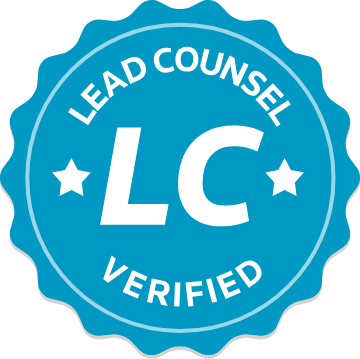
When facing a divorce, dividing a family-owned business requires careful planning. This guide covers the unique challenges involved, from financial entanglements to emotional impacts, and offers strategies for asset protection, accurate valuation, and maintaining stability post-divorce. Learn how to navigate this complex process and keep your business intact.
If you’re navigating the complex process of dividing a family-owned business during a divorce, it’s crucial to have experienced legal guidance. At Neumann Family Law, A.P.C ., we specialize in helping clients protect their business assets and ensure continuity after divorce. Our team understands the intricacies of business valuation and the essential steps to properly divide business entities. At Neumann Family Law, A.P.C., there is no substitute for knowledge and experience in the handling of high-net-worth, complex divorce litigation. Firm founder Sara Neumann, CFLS and 2021-2025 Super Lawyers honoree, has 27 years of divorce litigation experience. Edward Castro, CFLS and 2022-2025 Super Lawyers honoree, has 31 years’ experience. The firm handles complicated trials lasting over five days, involving complex business and asset valuations, tracing issues, support, and custody.
Contact us today at (619) 282-1107 for a complimentary consultation with a San Diego divorce attorney to discuss your case. Let us help you safeguard your business and secure the best possible outcome for your future.
👉Also Read: How to Prepare Yourself For San Diego Family Court
Understanding the Unique Challenges of Family-Owned Business Divisions in Divorce
The intertwining of personal, family, and financial interests divides family-owned businesses particularly complex during divorce proceedings. Emotional hurdles can cloud logical decision-making, making proactive planning essential to maintain business continuity and functionality. The intricate blend of personal and professional lives in family-owned businesses often exacerbates potential conflicts, underscoring the need for strategic approaches to asset protection and division.
Family-owned businesses face unique challenges during divorce due to the blend of personal and professional lives. The emotional impact on business operations and financial entanglements can further complicate matters. Understanding these challenges is the first step in proactively safeguarding your business’s future.
Blending Personal and Professional Lives
In family-owned businesses, personal relationships and business operations can be deeply intertwined, complicating decision-making processes during a divorce. Maintaining boundaries between personal and professional lives during marriage can be vital. This includes having separate bank accounts for personal and business finances and using prenuptial agreements to pre-agree on asset division. Such measures can protect business assets and ensure they remain classified as separate property, providing a layer of security against the complexities of divorce.
Financial Entanglements
Financial complications are another major challenge in the division of family-owned businesses during divorce. In California, community property laws dictate that marital assets, including those linked to a family business, are typically split equally during divorce. This can lead to significant conflicts over business valuation and the categorization of all or part of the assets as marital or separate property.
Prenuptial agreements can designate assets acquired during marriage as separate property if they were inherited or received as gifts.
Accurate Valuation of the Family Business
Accurately valuing a family business is crucial. The chosen valuation method can significantly impact the outcome, underscoring the importance of selecting the right approach. At Neumann Family Law, A.P.C., we emphasize precise valuations to ensure fair distribution, and understanding various methods can aid in informed decision-making.
The valuation process ensures that the value assigned reflects the true worth of the business.
Common Valuation Methods
Several methods are commonly used to value a community business, each with its own advantages and challenges. Here are the main approaches:
- Income Approach: Values a business based on the present value of expected future cash flows, making it ideal for businesses with steady income streams.
- Market Approach: Estimates value based on comparable sales, providing a benchmark against similar businesses.
- Asset-Based Approach: Determines value by subtracting liabilities from total assets, offering a direct calculation of net asset value.
Each method has its relevance depending on the business’s nature and financial situation.
Role of Forensic Accountants
Forensic accountants play a pivotal role in divorce proceedings by offering specialized financial knowledge and assistance. Their thorough and impartial financial analysis helps protect the integrity of financial disclosures, ensuring all relevant information is considered during asset division.
Dealing with Disputes Over Valuation
Valuation disputes are common in divorce cases involving family-owned businesses. Negotiation and mediation can help resolve these conflicts effectively, fostering a collaborative approach.
Mediation, in particular, offers a way to minimize hostility and promote constructive dialogue about valuation disagreements, allowing the parties to find common ground. This approach not only expedites the resolution process but also helps maintain business relationships post-divorce.
If mediation is not possible, then the retention of your own professional to value the community business may be necessary.
Strategies to Protect Business Assets During Divorce
Protecting business assets during the divorce process is crucial for maintaining business continuity and safeguarding long-term interests. Strategic planning and legal measures can shield the family business from the fallout of marital dissolution, including prenuptial and postnuptial agreements, structuring buyouts, and maintaining separate property status.
Implementing these strategies requires careful consideration and proactive measures to ensure that the business remains secure and operational during and after divorce proceedings. By focusing on these protective measures, business owners can better manage the complexities of asset division and maintain stability.
Prenuptial and Postnuptial Agreements
Prenuptial and postnuptial agreements are powerful tools for protecting business assets during divorce. These agreements can ensure that the business remains classified as separate property, preventing ownership issues during separation. A well-drafted prenuptial agreement can also minimize disruption to business operations and define ownership and division of assets, reducing complications during divorce.
Structuring Buyouts
When a divorce occurs, business owners must decide between buyouts or continued co-ownership of the family business, if even possible. Structuring buyouts effectively can help maintain business continuity and ensure a smooth transition. This involves determining fair buyout terms and considering the financial implications for both parties.
Ensuring Business Continuity and Stability
Divorce can disrupt business operations and negatively impact employee morale and client relationships, posing a significant concern for family businesses. Developing a continuity plan is crucial to ensure that the business remains operational through the transition of divorce.
Ongoing legal consultation can assist in crafting strategies that safeguard business interests post-divorce. This focus on continuity and stability helps business owners navigate divorce complexities while maintaining a steady course.
Transition Plans
A well-crafted transition plan is essential for managing changes in business leadership and operations during a divorce. This plan should clearly define roles, responsibilities, and communication strategies during leadership changes post-divorce. Clear communication about leadership roles and expectations can minimize disruption and ensure a smooth transition.
In San Diego County, proactive transition planning months prior to divorce proceedings can help in determining and deciding on the best course of action for business continuity. Such plans should include operational adjustments to manage the process effectively and maintain business stability.
Legal Tools for Future Ownership and Roles
Using shareholder and operating agreements can clarify ownership stakes and responsibilities post-divorce, reducing conflicts. These legal frameworks are essential for defining ownership rights and responsibilities, ensuring that business operations continue smoothly.
Properly drafted agreements can help secure the business’s future and maintain stability.
Managing Employee Concerns
Effective communication with employees is crucial to ensure they understand the changes happening in the business and feel secure in their roles. Open dialogues and regular updates can help alleviate any fears and uncertainties they may have, fostering a supportive work environment.
Encouraging teamwork and setting clear goals post-divorce can significantly enhance overall productivity and performance within the company.
Navigating Tax Implications
Dividing a family business during a divorce can significantly affect both parties’ tax situations. Understanding the tax implications is crucial for making informed decisions.
Proper structuring of asset transfers and buyouts can help manage tax liabilities effectively. Deferred payments in buyouts, for instance, can be arranged over several years to accommodate cash flow limitations and avoid triggering unnecessary taxes. By consulting tax professionals, business owners can develop strategies to optimize asset division for tax efficiency and minimize tax liabilities.
Legal Assistance and Professional Guidance
Tailored and strategic guidance from family law professionals is crucial for protecting business interests during divorce. Determining equitable ownership division can be complex when business ownership is involved, requiring skilled legal assistance. Family law attorneys guide clients through legal complexities and advocate for their best interests during the divorce process.
Divorcing without an experienced San Diego divorce law attorney can jeopardize business interests and lead to unfavorable outcomes.
Choosing the Right Family Law Attorney in San Diego, CA
When facing a divorce involving business assets, it’s essential to choose a divorce attorney with experience in handling business-related divorce cases. A skilled family lawyer in San Diego with experience in these types of cases will have the knowledge and ability needed to protect your business and ensure continuity through the divorce process. Firm founder Sara Neumann, CFLS and 2021-2025 Super Lawyers honoree, has 27 years of divorce litigation experience. Edward Castro, CFLS and 2022-2025 Super Lawyers honoree, has 31 years’ experience. The firm handles complicated trials, lasting over five days, involving complex business/asset valuations, tracing issues, support, and custody.
Moreover, they also assist with drafting prenuptial and postnuptial agreements, negotiating fair asset division, and providing continuous legal support to safeguard business interests. Their knowledge of family law can make a significant difference in securing a favorable outcome for both your personal and business assets.
Benefits of Mediation
Mediation and arbitration can help resolve business-related disputes collaboratively, minimizing conflict between spouses. Mediation offers a cooperative approach, enabling spouses to negotiate agreeable terms without going to court, which can be lengthy, costly, and conflict-exacerbating.
Private trials, on the other hand, provide a formal method of resolving disputes with a Privately Compensated Temporary Judge (“PCTJ”) making final decisions. Both methods can expedite the resolution process.
Long-Term Planning with Experienced Legal Professionals
Engaging skilled San Diego divorce lawyers is crucial for developing long-term plans that protect business interests post-divorce. Ongoing consultation ensures that business owners are well-informed and prepared to navigate challenges effectively.
Prioritizing stability and the protection of business interests is essential for the long-term success of family-owned businesses after a divorce. At Neumann Family Law, A.P.C., we are dedicated to equipping business owners with the practical knowledge needed to make informed decisions post-divorce.
👉Also Read: Understanding the Mediation Process During a Divorce
Protect Your Business and Secure Your Future—Contact Us Today
If you’re facing the complexities of dividing a family-owned business during a divorce, it’s crucial to have experienced legal representation to protect your assets and ensure business continuity. At Neumann Family Law, A.P.C., we specialize in helping clients navigate the intricacies of business valuation, asset division, and legal strategies to safeguard their businesses. Contact us today for a complimentary consultation with one of our experienced San Diego divorce attorneys. Let us help you secure your business’s future and achieve the best possible outcome during and after your divorce.
Find more like this: Uncategorized



























